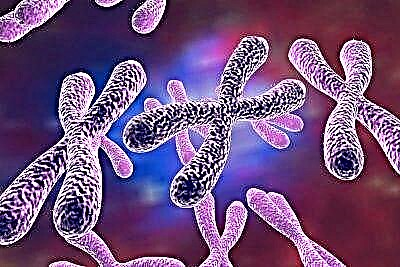
Preparation for in vitro fertilization is rather lengthy. While the couple is collecting all the necessary information and doing tests, the woman has time to improve the quality of her own eggs, because the success of the IVF attempt largely depends on this. We will tell you how to do this in this article.


Features of the life cycle of oocytes
Female eggs are a unique creation of nature. These are the largest cells in the human body, and their supply is strictly limited. Egg precursor cells begin to form in the girl's ovaries even while the girl is in the womb of her own mother. A baby is born with a supply of 400-500 oocytes of the first order in the ovaries, and this is her vital supply of eggs.
During puberty, these primary oocytes begin to mature in a girl, and every month one of the follicles bursts to release an egg ready for fertilization into the fallopian tube. This process is regulated by hormones, the task of the body is to prevent the release of more eggs so that the ovarian reserve is not depleted.
This is how menstrual cycles work. With each of them, a woman loses one (rather rarely two) eggs. The ovarian reserve is not replenished throughout life, and the quality of the remaining oocytes becomes noticeably worse with age. Some of the oocytes in the ovaries are exposed to harmful effects, some are released with menstrual cycles.

It is impossible to stop the process of oocyte degeneration with age - this is quite natural. The quality of oocytes is affected by the environmental situation in which the woman lives, her diet, bad habits, alcohol, various chronic diseases and cases of influenza and SARS suffered over the years. There can be much more harmful factors if a woman is often nervous, works at night, has an irregular sex life, if she underwent surgery under general anesthesia.
The decrease in the quality of oocytes becomes quite noticeable after 34 years. And this applies not only to women who smoke and do not neglect alcoholic beverages. Even a woman without bad habits is subject to this process - the aging process of oocytes: it's about hormones. The monthly action to suppress the activity of the nondominant follicles gradually makes them less active.

The female X chromosome is also aging. This means that with age, a woman has more and more chances to give birth to a baby with genetic and chromosomal diseases and syndromes. This risk increases in proportion to age. It becomes highest if the woman is already 40 years old.
Only newborn girls have 100% healthy eggs. By the age of ten, only 70% of the oocytes of the first order remain, which are capable of becoming healthy and mature eggs under favorable conditions. A 20-year-old girl has about 37% of her initial eggs in reserve. A 30-year-old woman has no more than 12%. At 35, a woman has only 7% of the eggs with which she was born. In 45 years - there are no more than 1-2%.

Requirements
At each stage of IVF, the quality of the oocyte plays a huge role. At the initial stage, a woman's ovaries are stimulated with hormonal agents. This is necessary in order to obtain a larger number of eggs: the more eggs there are at the disposal of embryologists, the higher the likelihood that fertilization will be successful and after transplantation into the uterine cavity the embryos will take root.
At the stage of hormonal stimulation, the ovaries must give an adequate response: several follicles must grow evenly and quickly. They are monitored using ultrasound, as well as a blood test for luteinizing hormone. It is important not only that the number of dominant follicles is impressive, but also the quality of maturing oocytes inside is of great importance.
As soon as three or more follicles reach sizes from 16 to 22 mm, hCG preparation is injected, which stimulates the rapid maturation of oocytes. If you hurry, you can get immature eggs, which may not fertilize or cause the formation of severe pathologies in the embryos. After the injection of hCG, it takes about 36 hours before the puncture of the follicles.


Doctors perform it under general anesthesia. The follicles are pierced with a thin hollow instrument-needle and the fluid is drawn out by aspiration, which fills them together with the oocytes. Often, especially in older women, in large and seemingly completely ready follicles there is no egg at all, the follicle itself under the influence of hormonal stimulation turns into a cyst.
The resulting oocytes are meticulously evaluated by embryologists. They place the cells in a nutrient medium for several hours, after which the thickness of the membranes, the shape of the egg, and the correct location of all intracellular structures are assessed. Quality oocytes usually produce quality embryos. If the cell membranes are denser than necessary for normal fertilization with the sperm of a spouse or donor in a Petri dish, then the ICSI method can be used. With it, the selected spermatozoon is injected with microinstruments using a manipulator directly under the egg membrane.
A high-quality and healthy egg will become a good basis for a strong and viable embryo, which, after a few days of cultivation, will be transferred into the uterine cavity. It remains only to wait until the embryos are implanted into the endometrium of the uterus and a full pregnancy occurs.


If embryologists consider the quality of oocytes to be unsuitable and unsatisfactory, the woman may be recommended to IVF with the use of a donor egg. Only healthy, fully examined (including for genetic disorders) young fertile women become oocyte donors. The question of a donor egg is usually given to a woman quite hard mentally and emotionally.
While preparations are underway for the protocol, there is no need to waste time. Despite the age-related causes of many processes, a woman can and should do everything to improve the quality of her germ cells before entering the IVF protocol.

Ways to improve female biomaterial
There is no universal cure or advice in this matter. The process of improving the quality of biomaterial is gradual and sequential. It requires a serious, systematic and comprehensive approach. Individual recommendations for a woman, taking into account her age and the reasons for the couple's infertility, can only be given by the attending physician. Here are the general rules that a woman must follow before the IVF procedure.

Lifestyle
Nicotine and alcohol destroy the organelle structures of female reproductive cells. Even if a woman smoked before making the decision to do IVF, bad habits should be completely eliminated to improve the quality of oocytes. Usually 3-4 months is enough for many of the body systems of a woman who quit smoking to begin to return to normal. The reproductive system is no exception.
The second question that a woman should ask herself and herself honestly answer it: "Is the weight okay?" Excess body weight, as well as underweight, negatively affects the hormonal background. Not only the quality of eggs suffers, but also the function of the ovaries, complications at the stage of stimulation are not excluded. After the transfer, the excess weight of the woman reduces the likelihood of a successful implantation. And even if this stage is successful, weight problems can have negative consequences during pregnancy and childbirth.
Scientists have found that normalizing weight after a couple of months significantly improves fertility and the quality of eggs. The response of the ovaries to hormonal stimulation in the IVF protocol is more favorable, the response is adequate. The risk of developing ovarian hyperstimulation is significantly reduced.


At the very initial stage of preparation for IVF, you should revise your work schedule. A woman who has firmly decided to become a mother and for this has decided to resort to assisted reproductive techniques should definitely sleep at night - this normalizes the production of many hormones, including sex hormones. Working the night shift is an unaffordable luxury for women who are confused about preparing for IVF. You should also refrain from working in hazardous industries, especially dangerous for the health of eggs are contacts with bleaches, solvents, a large amount of aggressive household chemicals, paints and varnishes, lead, mercury, as well as work in conditions of an increased background radiation.
Stress, especially chronic, constant, rapidly "ages" female reproductive cells. Once again, when sorting out the relationship with your neighbors or husband, do not forget about it. Surround yourself on the eve of an important stage in your life only with pleasant, positive people. If your stress level is already off the charts, do not hesitate to contact a psychologist or therapist. These professionals have interesting techniques and ways to help you relax and tune in for a successful pregnancy in the future.


All courses of treatment with antibiotics, hormones (not prescribed by a reproductive specialist), anticonvulsants and psychostimulants should be completed several months before entering the IVF protocol. The body needs to be given time to recover - this will increase the quality of the eggs.
Keep an active lifestyle, take outdoor walks every day, but avoid strenuous physical activity. Swimming will be beneficial, but bodybuilding will not. Moderate physical activity improves metabolic processes - this has a very good effect on the quality characteristics of female germ cells.
Do not go to the solarium, try to avoid being in a hot bath for a long time. But sitz baths with decoctions of chamomile or sage will help improve blood flow in the uterus and ovaries, which will certainly bring positive results.


Vitamins and dietary supplements
Biologically active additives such as Ovariamin, Inositol will help a woman to improve the menstrual cycle and the quality of the germ cells. Before using, be sure to consult your doctor. Usually, these drugs are designed for a fairly long time, so you should not expect a quick result.
A woman must definitely take vitamins. Vitamin E will take care of the normalization of the thickness and other characteristics of the cell walls. Folic acid is important for the health of the X chromosome and significantly reduces the risk of congenital malformations of the fetus. In addition, a woman should take daily daily dosages of calcium, magnesium, iron, potassium, B vitamins, vitamins A, D and vitamin C.
In order not to get confused in the multiplicity and mass of vitamin preparations, you can take a multivitamin complex. Any of the "For expectant mothers" line will do.


Before using vitamins, be sure to ask your doctor's opinion. According to the clinical blood test, the specialist perfectly sees which vitamins or minerals are missing for you, and therefore will help you choose a drug in which the substance, which is still in short supply, will prevail. The normalization of mineral metabolism and a sufficient amount of vitamins improve the menstrual cycle and, as a result, the quality of oocytes produced by the ovaries.
Do not ignore the time-tested folk remedies. The quality of female germ cells is well influenced by the intake of sage, borax uterus. Before use, as in the case of dietary supplements and vitamins, it is imperative to ask the opinion of the treating doctor, since medicinal plants also have their indications and contraindications.


Nutrition
Mono-diets negatively affect the state of the reproductive system. Even if a woman considers herself a vegan, before IVF, she should definitely include meat, fish, eggs in her diet. A protein diet will help your ovaries work more productively during stimulation.
Proper nutrition to improve the quality of oocytes should be based on the principles of balance. It should contain fruits, vegetables, fresh herbs and berries, but meat and other animal proteins should prevail over plant foods.
For the maturation and maturation of full-fledged eggs, a woman should give up fast food, since preservatives and dyes, which are used in huge quantities in the preparation of hamburgers, lead to violations of the genetic set of sex cells in both women and men. No less dangerous are store-bought juices in boxes, "chemical" (bright) candies and gummies.
You should give up coffee and strong tea. Chicory can replace your favorite morning drink. It tastes very similar to coffee, but it is difficult to find analogues in terms of the degree of positive effect on the female reproductive system.


Reviews
To improve the quality of oocytes before IVF, many women use fish oil, it does not matter in what form: in capsules or liquid form. In addition to it, fatty fish and seafood are introduced into the diet.
A lot of good reviews about cinnamon too. Before in vitro fertilization, it is taken in capsules. Often, cinnamon capsules are recommended by reproductologists to those who are to undergo IVF, since this plant substance causes a fairly rapid and noticeable improvement in the quality characteristics of eggs.


For information on how to prepare for IVF, see the next video.



